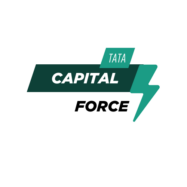When it comes to digital advertising, understanding Google Ads cost per click (CPC) is crucial for businesses of all sizes. Whether you’re a startup diving into pay per click (PPC) advertising or an established brand optimizing your campaigns, knowing how to calculate and manage CPC can determine the success of your advertising efforts. In this guide, we’ll break down everything you need to know about Google Ads CPC, how it’s calculated, and how you can reduce it while maximizing your return on investment (ROI).
What Is CPC in Google Ads?
CPC (cost per click) refers to the amount you pay for each click on your ad. It’s a core metric in pay per click advertising that directly impacts your budget and campaign performance. Simply put, CPC meaning revolves around the cost incurred every time a potential customer engages with your ad by clicking on it.
In Google pay per click advertising, you set a maximum CPC bid, which is the highest amount you’re willing to pay for a click. However, the actual amount you pay may vary depending on factors like competition, ad quality, and relevance.
How Is Average CPC Calculated in Google Ads?
The formula for calculating average CPC Google Ads is straightforward:
Average CPC = Total Cost of Clicks / Total Number of Clicks
For example, if you spend $500 on a pay per click campaign and receive 250 clicks, your average CPC will be:
$500 ÷ 250 = $2 per click.
However, this is only part of the picture. Google uses a dynamic auction system to determine the actual Adwords CPC for each click, taking into account:
- Quality Score: A measure of your ad’s relevance, click-through rate (CTR), and landing page experience.
- Ad Rank: Calculated based on your bid amount and Quality Score.
- Competition: The number of advertisers bidding on the same keywords.
What Does CPC Stand For in Marketing?
CPC advertising is a model where advertisers pay only when their ad is clicked. It’s a cost-effective way to drive traffic to your website compared to CPM (cost per mille), where you pay for impressions.

The primary goal of pay-per-click advertising is to attract high-intent users actively searching for your products or services.
Factors Affecting Google Ads Cost Per Click
Several factors influence Google Ads cost per click, including:
- Keyword Competition: Highly competitive keywords like “insurance” or “legal services” often have higher CPCs.
- Quality Score: Ads with higher Quality Scores enjoy lower CPCs and better ad placement.
- Ad Rank: Your Google CPC is determined by your Ad Rank compared to competitors.
- Device Targeting: CPCs may vary for desktop, mobile, and tablet users. For example, CPC marketing costs on mobile devices can sometimes be higher due to increased competition.
- Bidding Strategy: Whether you use manual or automated bidding, your strategy impacts your pay per click costs.
- Geographic Location: CPCs differ across regions, with developed markets like the U.S. typically having higher cost per click Google Ads than emerging markets.
How to Reduce Your CPC in Google Ads
Reducing your Google Ads CPC can save you significant ad spend while improving your campaign’s ROI. Here are actionable strategies:
Optimize Your Quality Score
The higher your Quality Score, the lower your CPC advertising costs. Focus on:
- Writing compelling ad copy with clear CTAs.
- Using relevant keywords in your ads and landing pages.
- Improving your CTR by targeting the right audience.
Use Negative Keywords
Negative keywords prevent your ads from showing up for irrelevant searches. For instance, if you’re running a pay by click advertising campaign for luxury handbags, adding “cheap” as a negative keyword can help filter out low-value clicks.
Experiment with Bidding Strategies
Switch between manual and automated bidding to find what works best for your pay per click campaigns. Automated strategies like Target CPA (Cost Per Acquisition) can optimize for conversions while managing costs.
Refine Your Targeting
Use geo-targeting, device targeting, and audience segmentation to reach the most relevant users. This can reduce unnecessary clicks and lower your Google Ads cost per click.
Test Ad Variations
A/B testing different ad headlines, descriptions, and visuals can improve CTR, which in turn reduces CPC.
FAQ: Frequently Asked Questions About Google Ads CPC
What Is CPC in Marketing?
CPC in marketing refers to the cost an advertiser pays for each click on their ad. It’s a key metric in pay-per-click ads that helps determine the effectiveness of a campaign.
How Should I Set My Maximum CPC Bid?
Your maximum CPC bid should balance your campaign goals and budget. Start with a moderate bid and adjust based on performance metrics like CTR and conversion rates.
What Is the Difference Between CPC and CPM?
While CPC ads charge per click, CPM (cost per mille) charges per 1,000 impressions.

CPC is ideal for driving traffic, while CPM is better for brand awareness campaigns.
Does CPC Vary on Mobile Devices?
Yes, Google Ads CPC often varies between desktop and mobile devices due to differences in competition and user behavior.
How Can I Manage High CPCs for Competitive Keywords?
Focus on long-tail keywords.
Improve your Quality Score.
Use audience targeting to narrow your reach.
How Often Should I Review My CPC Bids in Google Ads?
Review your bids weekly or bi-weekly to ensure your pay per click campaigns remain cost-effective. Regular adjustments can help you stay competitive without overspending.
The Role of CPC in Conversion Rates
Your Google Ads cost per click directly impacts your ROI. While a lower CPC can reduce costs, it’s essential to focus on driving high-quality traffic that converts. Analyze metrics like conversion rate, cost per conversion, and revenue generated to evaluate the true impact of your CPC marketing efforts.
Final Thoughts
Understanding and optimizing Google Ads CPC is essential for successful pay per click advertising campaigns. By focusing on Quality Score, strategic bidding, and precise targeting, you can lower your costs while increasing conversions. Remember, a well-managed pay per click campaign not only saves money but also drives meaningful results for your business.
Whether you’re new to Google pay per click or looking to refine your strategy, these insights will help you make data-driven decisions and achieve your advertising goals. Start applying these strategies today to maximize your ROI and stay competitive in the ever-evolving world of CPC advertising.



